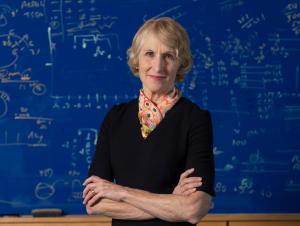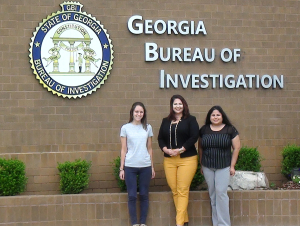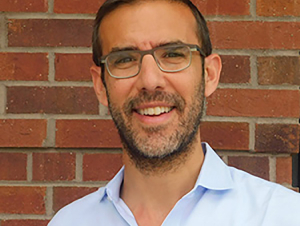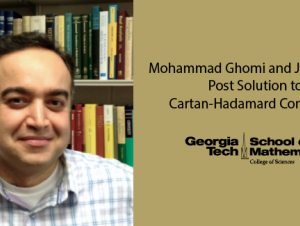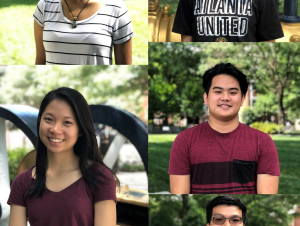To request a media interview, please reach out to experts using the faculty directories for each of our six schools, or contact Jess Hunt-Ralston, College of Sciences communications director. A list of faculty experts is also available to journalists upon request.
Latest News
When it rains, it pours. That’s how it felt last month when email after email from School of Psychology Acting Chair Mark Wheeler arrived in various inboxes, sharing the joyful news of a new award. The announcement of a $334,000 grant to Dobromir Rahnev in May has been succeeded by seven other research awards to eight faculty members.
Susan Lozier began her service as the new Dean and Betsy Middleton and John Clark Sutherland Chair of the College of Sciences on September 1. Lozier’s path to Georgia Tech is marked by excellence in research, education, and leadership, as well as the integration of scientific disciplines and a passion for mentoring. As dean, she will bring her vast experience to bear in addressing the needs of the College as she leads it to the next levels of achievement.
Television shows like “CSI” and “Law and Order” have popularized crime investigations. For dramatic reasons, popular-culture portrayals of forensic analysis may not always be accurate. We spoke with three Georgia Tech alumni now working at the Georgia Bureau of Investigation (GBI) to get a real-world sense of working in a crime lab.
The National Institutes of Health has awarded a $2.5 M grant over five years to advance the clinical potential of bacteria-killing viruses to treat antibiotic-resistant infections. Joshua Weitz of the School of Biological Sciences and Justin Debarbieux of Institut Pasteur will lead teams in the U.S. and France to research the interaction between bacteriophage, bacteria, and the innate immune response to enable use of phage therapy even with patients with impaired immune systems.
School of Mathematics Professor Mohammad Ghomi and Joel Spruck of Johns Hopkins University recently posted ArXiv their proposed solution tothe Cartan-Hadamard Conjecture, a long-standing problem in Analysis and Geometry.
We all know about the periodic table in some capacity. For scientists, it is a widely-accepted arrangement of chemical elements organized by trends and properties. For others, it’s mostly a colorful reminder of high school classrooms and chemistry textbooks. But have you ever considered trying to use the periodic table as an organizing principle? First-year students in Courtney Hoffman’s English 1102 course last summer did exactly that – create their own periodic tables.


